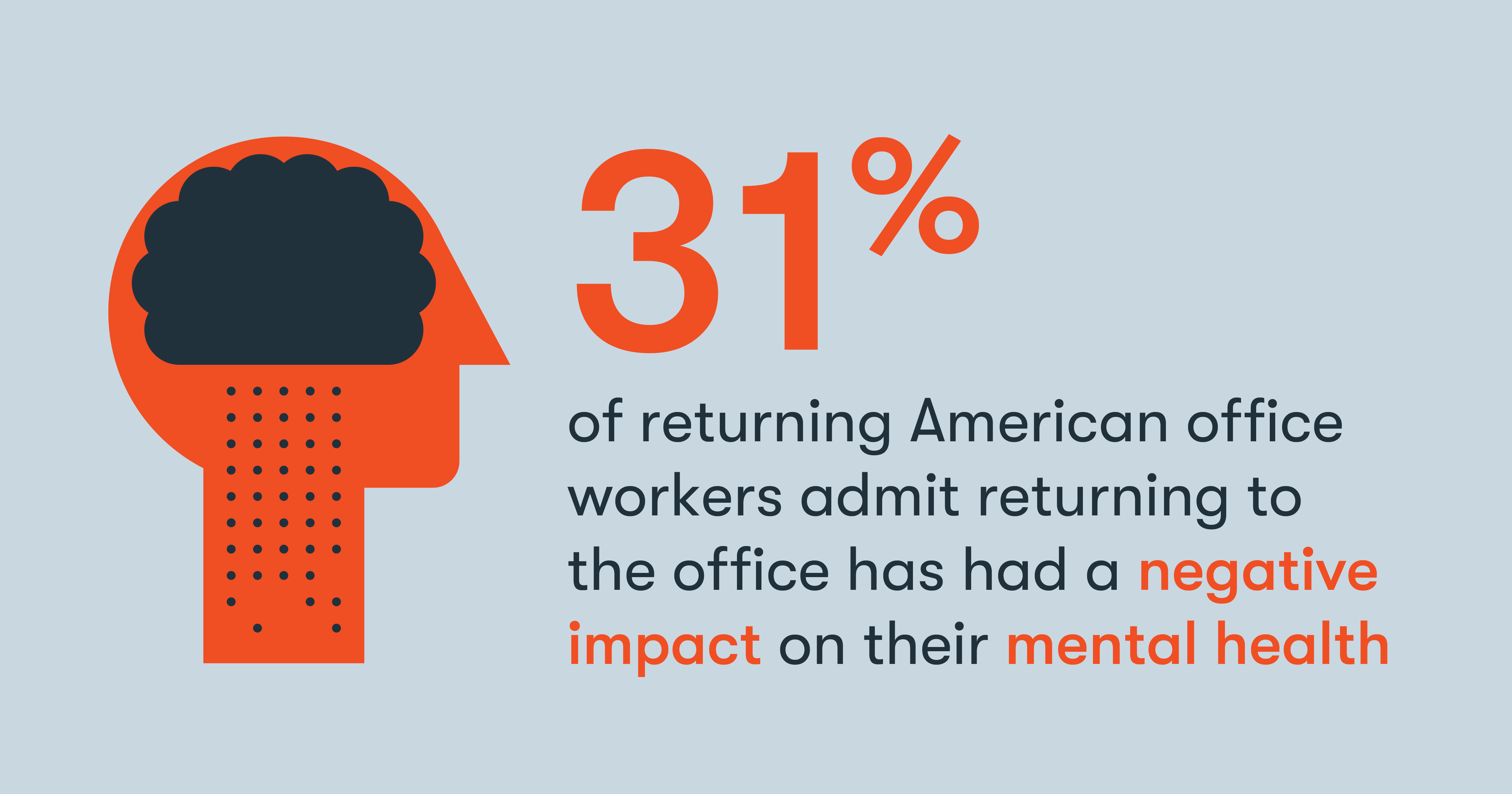

MENTAL HEALTH | 4/20/22 12:00 AM | by Twill

Offices across the country have reopened this spring—and some employees are struggling with the transition and experiencing high levels of stress and anxiety.
Read the full report and watch the video below about the challenges associated with returning to the office. Employers that address the post-pandemic expectations of their workforce and offer digital tools to support their mental health needs will be able to attract and retain top talent.
During the pandemic, the pivot to remote work impacted American office workers in a variety of ways. Working parents were hit especially hard, forced to juggle their jobs with childcare and other obligations.
But for some, working from home was liberating, thanks to no more commutes, flexible schedules, and greater autonomy. After enjoying two years of feeling more in control, returning to the office is causing them serious emotional distress.
Twill commissioned the research firm Nonfiction to explore this phenomenon and interview U.S. office workers about their experience returning to their offices. The video above touches on the key findings from their research, such as:

@2022 Twill Inc.
All rights reserved.